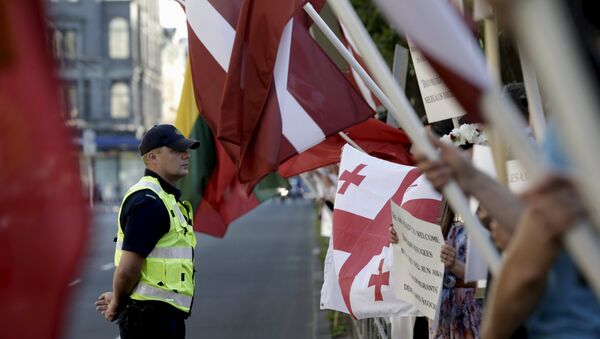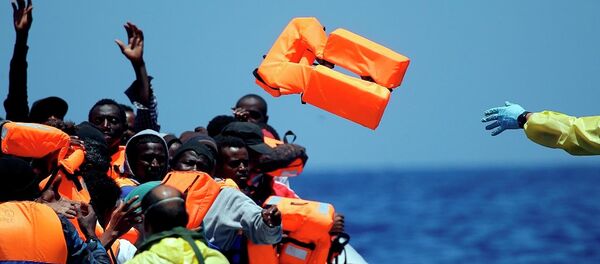Interior ministry advisor Dajga Holma expressed Monday that it is critical for the issue to be "resolved on the internal political level" as soon as possible. Latvian media has reported that Kozlovskis and members of the Alliance party will discuss the issue with President Raimonds Vejonis, who had stated earlier that Latvia "cannot distance itself from the humanitarian crisis faced by our partners."
On Friday, local media reported that the country's ruling coalition, including the center-right Unity Party, the nationalist National Alliance, and the centrist Union of Greens and Farmers, had been unable to come to an agreement on accepting additional migrants, with the nationalists and greens dissenting from Unity's position on accepting 526 persons in addition to the estimated 50 people the country has already taken, and the 250 Riga had pledged to take last month.
The disagreement, which local experts have suggested could lead to a constitutional crisis, comes on the heels of proposals by European Commission Head Jean-Claude Juncker, who stated recently that the EU would have to accept and distribute an additional 160,000 refugees across its member nations.
In an interview for Latvian television, Kozlovskis warned that refusing migrants outright was not something any EU member country, including Latvia, could afford to do. The minister noted that Latvia would feel the consequences of such a decision immediately, noting that "this includes financial issues, as well as security aspects." Kozlovskis ultimately warned that the migrant issue "is a matter of our future. It is not a political issue and not a matter of the coalition. It is a question of national importance –on where we are today and whether we will be able to remain in Europe," he warned.
Unity Party President Solvita Aboltina echoed Kozlovskis's words in comments made earlier, noting that the only alternative to Latvia accepting the migrants would be to leave the EU.
Latvia's National Security Council is now set to meet later this week to further discuss the refugee crisis issue.




